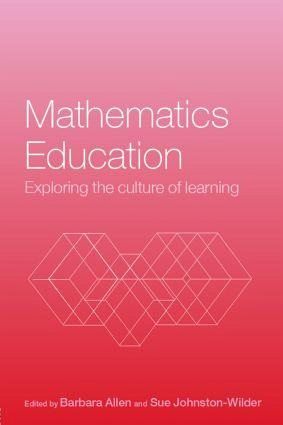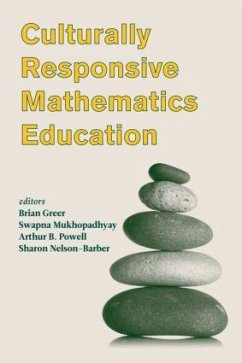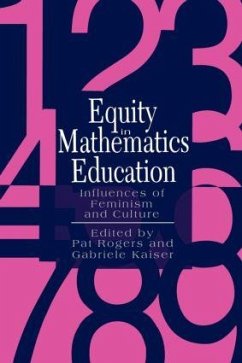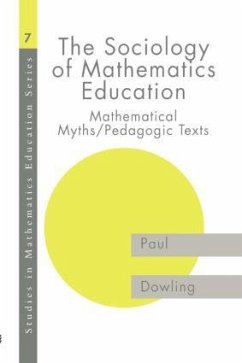
Mathematics Education
Exploring the Culture of Learning
Herausgeber: Allen, Barbara; Johnston-Wilder, Sue
Versandkostenfrei!
Versandfertig in 1-2 Wochen
48,99 €
inkl. MwSt.
Weitere Ausgaben:

PAYBACK Punkte
24 °P sammeln!
Mathematics Education identifies some of the most significant issues in mathematics education today. Pulling together relevant articles from authors well-known in their fields of study, the book addresses topical issues such as: gender equity attitude teacher belief and knowledge community of practice autonomy and agency assessment technology. The subject is dealt with in three parts: culture of the mathematics classroom, communication in mathematics classrooms and pupils' and teachers' perceptions. Students on postgraduate courses in mathematics education will find this book a valuable resour...
Mathematics Education identifies some of the most significant issues in mathematics education today. Pulling together relevant articles from authors well-known in their fields of study, the book addresses topical issues such as: gender equity attitude teacher belief and knowledge community of practice autonomy and agency assessment technology. The subject is dealt with in three parts: culture of the mathematics classroom, communication in mathematics classrooms and pupils' and teachers' perceptions. Students on postgraduate courses in mathematics education will find this book a valuable resource. Students on BEd and PGCE courses will also find this a useful source of reference as will teachers of mathematics, mentors and advisers.














